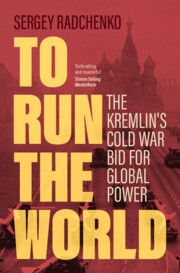Book contents
- To Run the World
- Reviews
- TO Run the World
- Copyright page
- Dedication
- Contents
- Introduction
- Part I Ambition
- Part II Hubris
- 5 Love Us as We Are
- 6 The Golden Hoop
- 7 Twin Crises
- 8 Killing Flies
- 9 The Spirit of Camp David
- 10 Berlin
- 11 Cuba
- Part III Decline
- Part IV Collapse
- Acknowledgments
- Figures
- Notes
- Bibliographical Essay
- Index
7 - Twin Crises
from Part II - Hubris
Published online by Cambridge University Press: 30 May 2024
- To Run the World
- Reviews
- TO Run the World
- Copyright page
- Dedication
- Contents
- Introduction
- Part I Ambition
- Part II Hubris
- 5 Love Us as We Are
- 6 The Golden Hoop
- 7 Twin Crises
- 8 Killing Flies
- 9 The Spirit of Camp David
- 10 Berlin
- 11 Cuba
- Part III Decline
- Part IV Collapse
- Acknowledgments
- Figures
- Notes
- Bibliographical Essay
- Index
Summary
In July–September 1958, the world faced the threat of war twice due to a revolution in Iraq and Mao's actions near China's shores. The Iraqi Revolution led to the landing of US Marines in Beirut, prompting the Kremlin to brandish the nuclear stick, though it is clear that Khrushchev was simply bluffing: he had no intention of starting a nuclear war over US actions in the Middle East. Elsewhere, Mao Zedong, leveraging his belief that the socialist camp held the upper hand in the historic struggle against capitalism, pushed the world to the brink by provoking a crisis in the Taiwan Strait. Khrushchev's performance in these crises was mixed. The coup in Iraq weakened the Eisenhower doctrine and the Baghdad Pact, and Khrushchev claimed credit for these outcomes. However, his hopes for extending Soviet influence in the Middle East were left unfulfilled. The crisis off the Chinese coast forced Khrushchev to commit to defending an unpredictable ally in a nuclear war with the United States, undermining his faith in the alliance. In 1959, he cancelled an agreement to supply China with a prototype nuclear bomb. The Sino-Soviet alliance survived the tribulations of 1958, but the crises exposed their rivalry in the socialist camp, the third world, and their respective quests for America's recognition.
- Type
- Chapter
- Information
- To Run the WorldThe Kremlin's Cold War Bid for Global Power, pp. 199 - 229Publisher: Cambridge University PressPrint publication year: 2024

